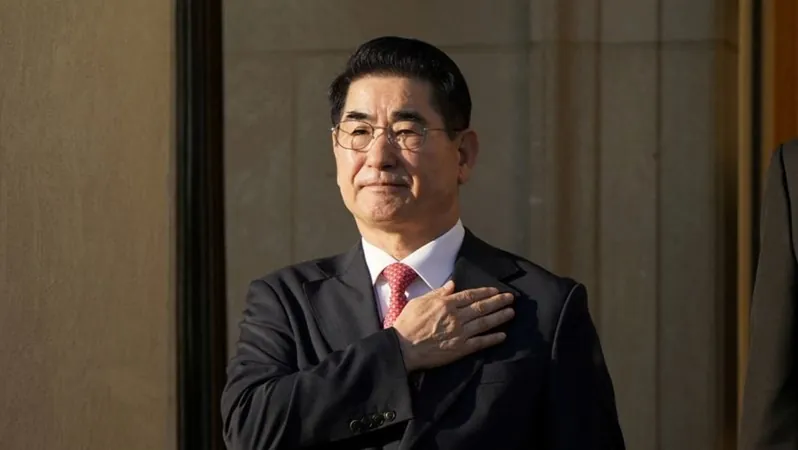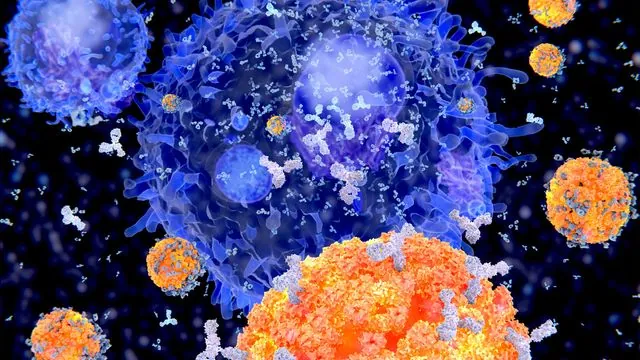
Tragic Deaths of Dave Onawelo and Wayne Bayley Highlight Urgent Need for Change in Sickle Cell Care
2024-12-11
Author: Wei Ling
Tragic Deaths of Dave Onawelo and Wayne Bayley Highlight Urgent Need for Change in Sickle Cell Care
In December 2023, the heartbreaking case of 34-year-old Dave Onawelo unfolded at Whipps Cross Hospital in East London. After seeking help for a sickle cell crisis, Onawelo's condition was tragically dismissed by hospital staff despite his mother's urgent concerns about his deteriorating state. Regrettably, he became unresponsive and succumbed while waiting for vital medical attention—a chilling reminder of the systemic failures in the care of patients with sickle cell disease (SCD).
Similarly, in May 2022, 43-year-old Wayne Bayley faced a harrowing experience in his prison cell at HMP Pentonville. Despite expressing his inability to breathe, he was left without medical assistance for hours and lost his life to a sickle cell crisis. The inquest into Bayley’s death revealed that neglect from prison staff played a significant role in his demise, emphasizing the dire need for improved medical oversight for incarcerated individuals.
Both cases expose critical flaws in the system responsible for the care of individuals affected by SCD. According to the coroner, a lack of "compassion and clinical curiosity" was a significant factor in Onawelo's death, with early intervention potentially preventing this tragedy. These deaths are not isolated incidents; other recent inquests have echoed similar patterns of inadequate care for patients experiencing sickle cell crises, shining a spotlight on systemic issues that require urgent reform.
Understanding Sickle Cell Crisis: The Silent Struggle
Sickle cell disease is an inherited blood disorder that can wreak havoc on the body, affecting over 17,000 individuals in the UK, predominantly of Black African or Caribbean descent. The condition leads to sickle cell crises, marked by severe pain due to blockages caused by abnormally shaped red blood cells. Crises can emerge unexpectedly or be triggered by various factors such as infections, dehydration, stress, or extreme temperatures.
Patients experiencing these crises are expected to receive timely interventions—specifically pain relief and hydration—upon their arrival at the hospital. National guidelines dictate that such treatment should be administered within 30 minutes. Yet, many patients find themselves waiting for prolonged periods, enduring unnecessary suffering due to delays and inadequate hospital responses.
The Roots of Poor Care: A Complex Web of Challenges
Despite ongoing awareness, the struggle for proper care for sickle cell patients persists, with the "No One’s Listening" report revealing alarming trends in healthcare. Major contributing factors include insufficient knowledge among hospital staff regarding the management of SCD and an alarming prevalence of anti-Black racism within the healthcare system. Additionally, as emergency departments grapple with growing patient numbers and staff shortages, the care provided often falls short, exacerbating the pain and risks faced by individuals in crisis.
Moreover, the stringent protocols for pain management can hinder timely care, with some healthcare providers wrongly associating requests for strong pain relief with drug-seeking behavior. In cases like Wayne Bayley’s, where multiple health conditions coexist, the complexity of symptoms can further complicate diagnosis and treatment, leading to devastating outcomes.
Path Forward: Toward Compassionate Care and Improved Options for SCD Patients
The road to better management of sickle cell crises lies in the development of targeted treatments and systemic reforms. Although recent years have brought a trio of new medications for SCD, the withdrawal of two indicates a lack of consistent support for promising therapies. The disparities in funding and research into sickle cell disease must be addressed to ensure patients have access to effective treatments that can mitigate the frequency and severity of crises.
Efforts are underway to improve service delivery, including pilots for specialized sickle cell crisis centers that allow patients to bypass overwhelmed emergency departments. Additionally, initiatives like universal care plans for SCD patients in London aim to standardize and streamline treatments across healthcare facilities.
To effect meaningful change, healthcare workers need improved training to address their knowledge gaps and challenge any biases they may hold. As one patient poignantly expressed, “My plea to doctors is to show empathy, release any negative preconceptions about how people manage pain, and prioritize resolving the pain so I can get home as soon as it is safe to do so.”
Individuals with sickle cell disease lead vibrant, multifaceted lives, yet they bear a level of suffering that most people cannot comprehend. While the tragic deaths of Dave Onawelo and Wayne Bayley are irreplaceable losses, they underscore an urgent call for reforming care systems, advancing treatment options, and nurturing a culture of compassion. By doing so, we can alleviate the burden carried by those living with sickle cell disease and potentially save lives moving forward.



 Brasil (PT)
Brasil (PT)
 Canada (EN)
Canada (EN)
 Chile (ES)
Chile (ES)
 España (ES)
España (ES)
 France (FR)
France (FR)
 Hong Kong (EN)
Hong Kong (EN)
 Italia (IT)
Italia (IT)
 日本 (JA)
日本 (JA)
 Magyarország (HU)
Magyarország (HU)
 Norge (NO)
Norge (NO)
 Polska (PL)
Polska (PL)
 Schweiz (DE)
Schweiz (DE)
 Singapore (EN)
Singapore (EN)
 Sverige (SV)
Sverige (SV)
 Suomi (FI)
Suomi (FI)
 Türkiye (TR)
Türkiye (TR)